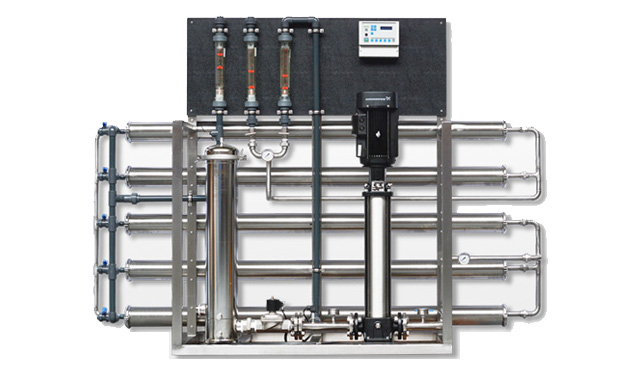Reverse Osmosis
Transforming Water Quality: The Power of Domestic and Industrial Reverse Osmosis Filtration
Water is a fundamental resource essential for life, and ensuring its quality is of paramount importance. As the demand for clean and safe water continues to grow, reverse osmosis (RO) filtration has emerged as a revolutionary technology in both domestic and industrial settings. By harnessing the power of selective filtration, reverse osmosis systems have become a game-changer in improving water quality. In this blog post, we will delve into the world of domestic and industrial reverse osmosis filtration and explore how they contribute to enhancing water quality.
Domestic Reverse Osmosis Filtration:
In residential settings, reverse osmosis filtration systems have become increasingly popular due to their effectiveness in eliminating contaminants. The process involves pushing water through a semi-permeable membrane that removes impurities, such as dissolved salts, heavy metals, pesticides, and even microorganisms, leaving behind clean, purified water.
The benefits of domestic reverse osmosis filtration are numerous. Firstly, it provides a convenient and cost-effective solution for homeowners concerned about the quality of their tap water. RO systems can effectively remove up to 99% of contaminants, providing peace of mind and improving the taste, odour, and appearance of water. Additionally, reverse osmosis filtration helps reduce the consumption of bottled water, contributing to environmental sustainability by minimising plastic waste.
Industrial Reverse Osmosis Filtration:
In industrial settings, reverse osmosis filtration plays a pivotal role in numerous sectors, including manufacturing, food and beverage production, pharmaceuticals, and power generation. Industrial RO systems are designed to handle high volumes of water, catering to the specific needs of each industry.
One of the significant advantages of industrial reverse osmosis filtration is its ability to produce high-purity water. By removing impurities and contaminants at the molecular level, RO systems ensure that water meets stringent quality standards required by various industries. Whether it’s removing minerals that can cause scaling in equipment or eliminating organic compounds that may impact product quality, reverse osmosis plays a vital role in maintaining operational efficiency and product integrity.
Improving Water Quality:
Both domestic and industrial reverse osmosis filtration systems significantly contribute to enhancing water quality. By effectively eliminating contaminants, these systems provide access to safe, clean, and great-tasting water. In domestic applications, families can enjoy the benefits of pure water for drinking, cooking, and other household needs.
In industrial settings, the benefits are far-reaching. Water treated with reverse osmosis filtration can lead to increased product quality, reduced equipment maintenance and downtime, and improved overall efficiency. In the food and beverage industry, for example, high-purity water is crucial for ensuring product safety and extending shelf life. Similarly, in pharmaceutical manufacturing, the removal of impurities is essential to maintain the integrity and efficacy of medications.
The adoption of reverse osmosis filtration systems, both domestically and industrially, has revolutionised water treatment and purification. By harnessing the power of selective filtration, these systems effectively remove contaminants, providing access to clean and safe water. The benefits are extensive, from improved taste and odour to environmental sustainability and enhanced product quality.
As the demand for high-quality water continues to rise, the significance of reverse osmosis filtration cannot be overstated. By investing in these advanced filtration technologies, we can safeguard our health, protect the environment, and contribute to a sustainable future where access to clean water is a reality for all.


